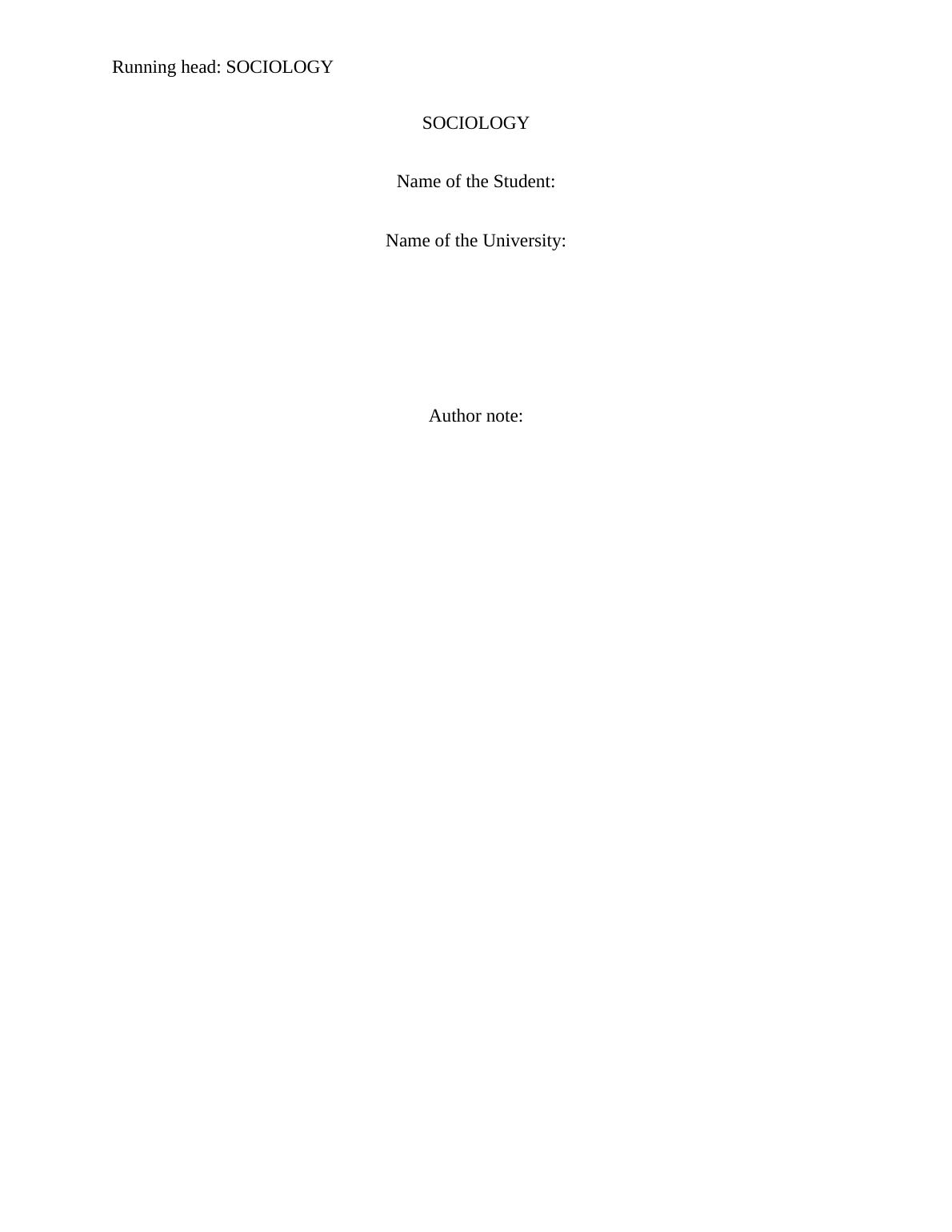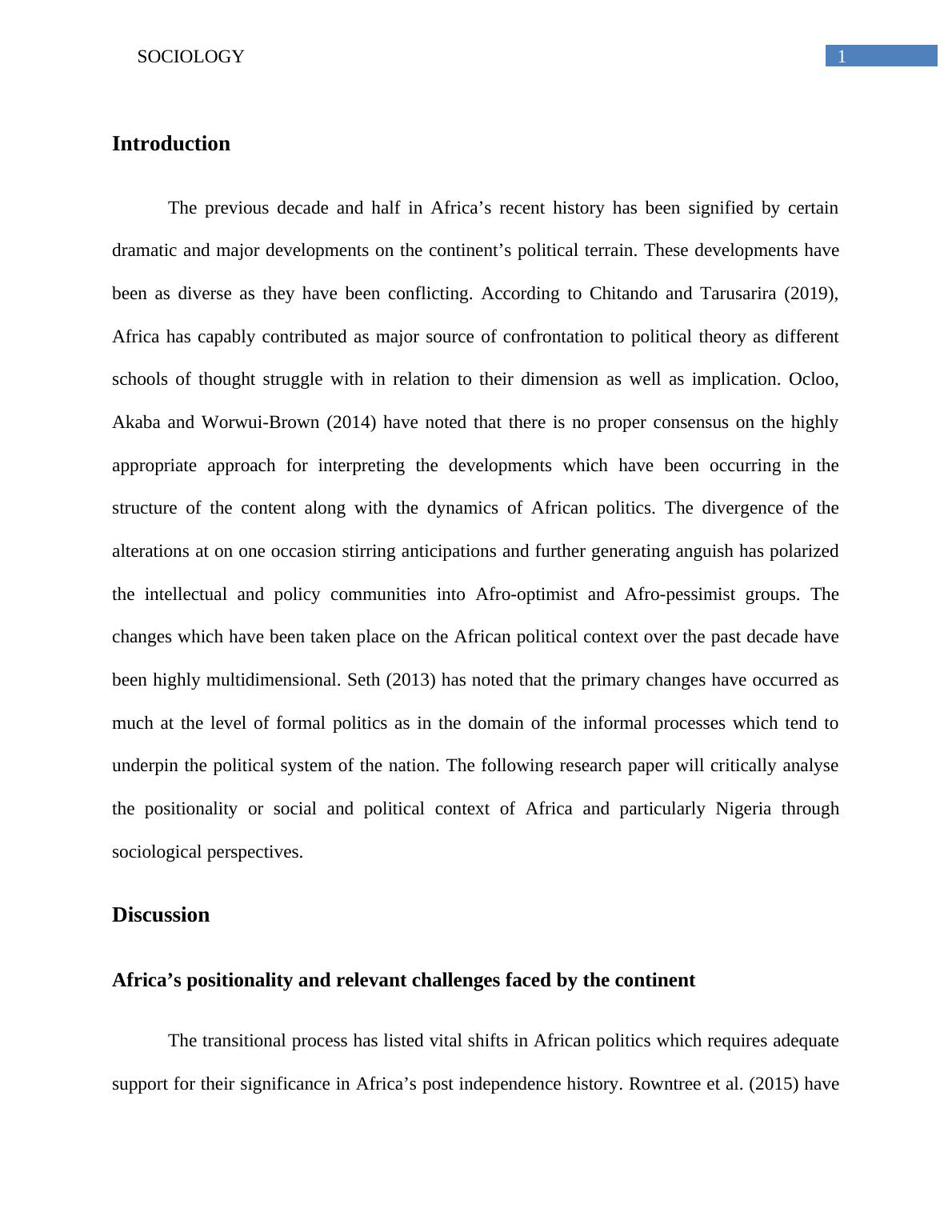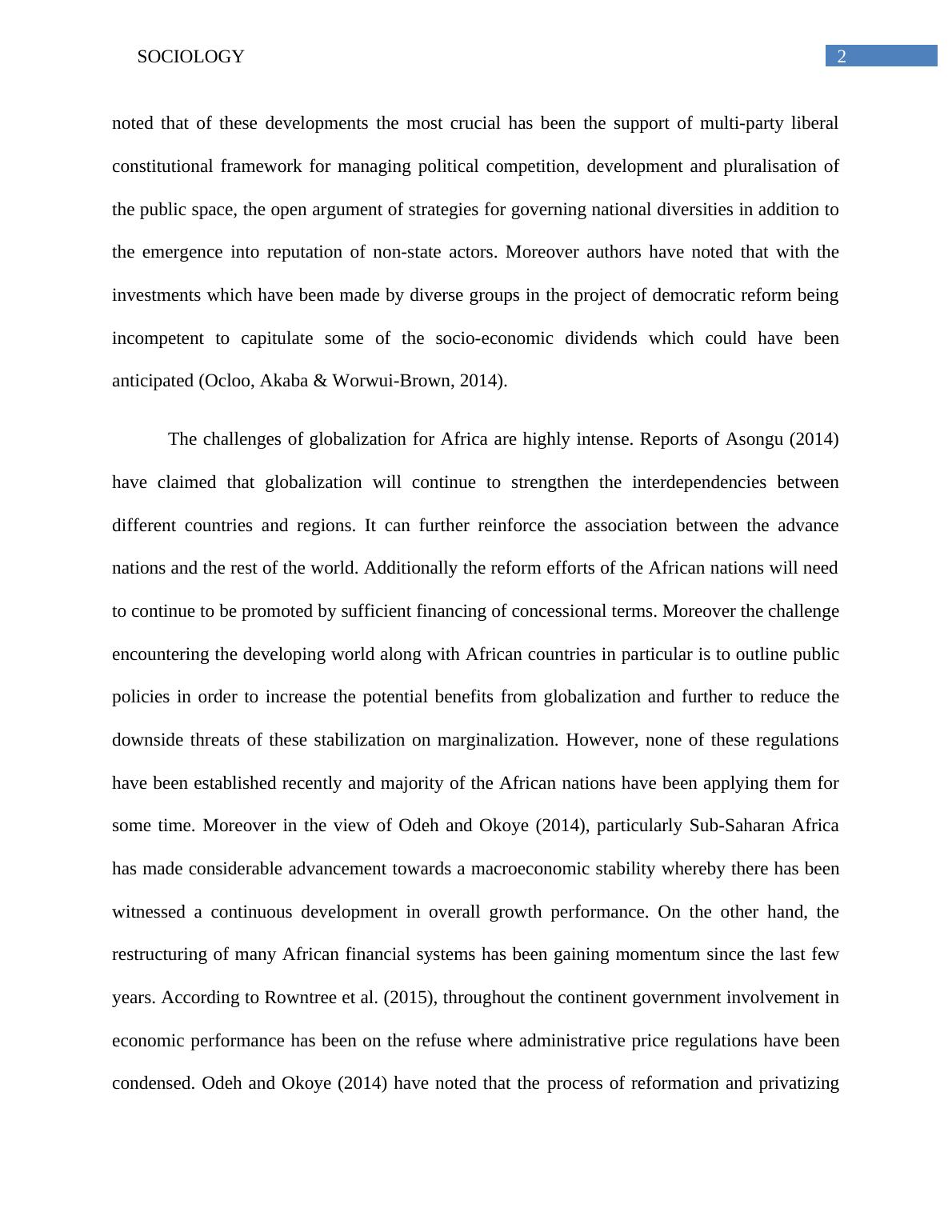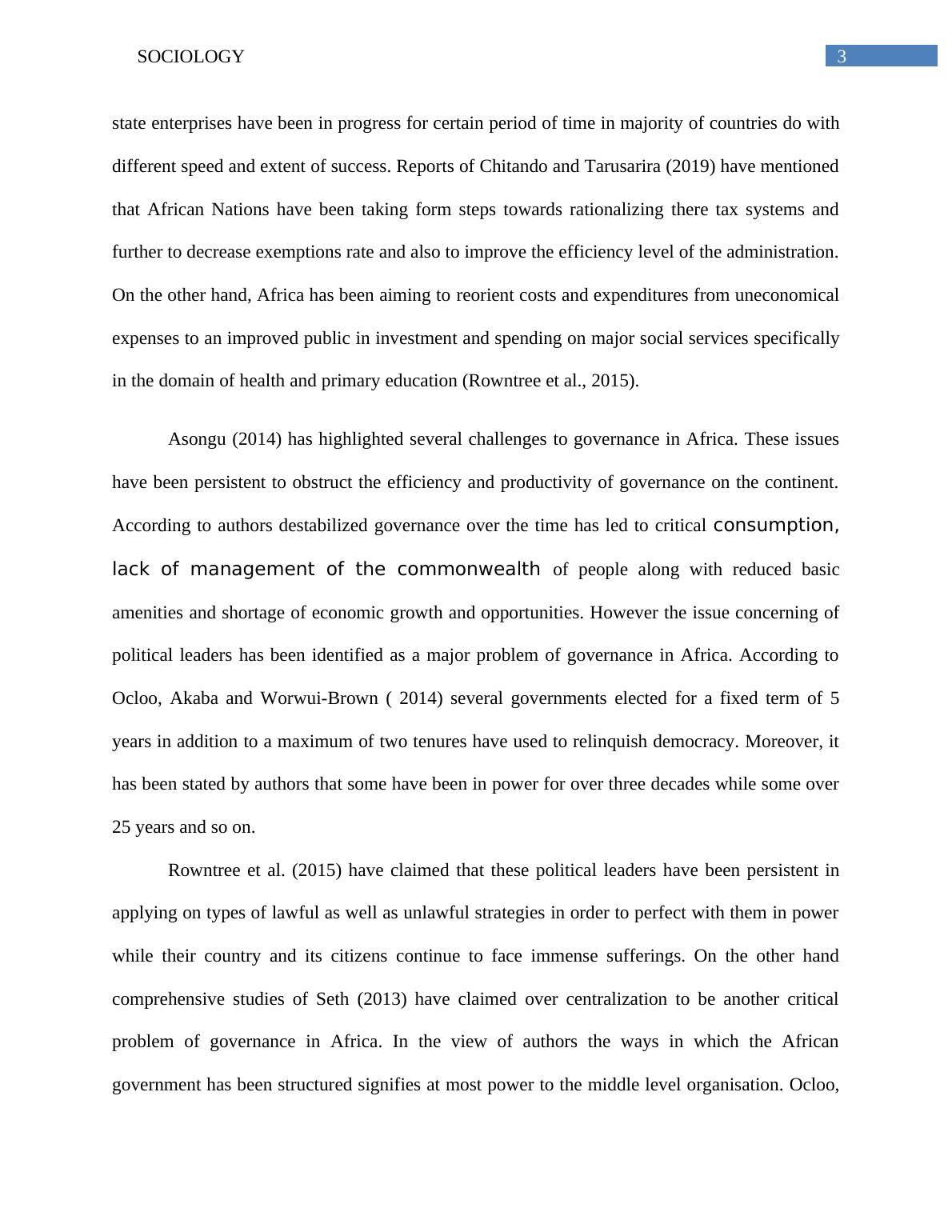Sociology: Africa's Political Terrain and Sociological Perspectives
Provide a critical analysis of the positionality of Nigeria within the international context
11 Pages2825 Words53 Views
Added on 2023-01-10
About This Document
This research paper critically analyzes the positionality of Africa, particularly Nigeria, through sociological perspectives. It discusses the challenges faced by Africa, the positionality of Nigeria within the international context, and the impact of political crises on socio-economic development.
Sociology: Africa's Political Terrain and Sociological Perspectives
Provide a critical analysis of the positionality of Nigeria within the international context
Added on 2023-01-10
ShareRelated Documents
End of preview
Want to access all the pages? Upload your documents or become a member.
A Sociological Intervention into Identity and Nationalism
|10
|2890
|407
Issues in Global Business and Strategic Concepts
|13
|3155
|201
Organization Culture of Africa
|20
|5324
|333
Health System Development and Performance in Chad: A Comparative Analysis
|9
|1082
|238
Global Poverty | Peace and Development
|12
|3370
|15
Nigeria Resides Among the Tropical Zone by Occupying
|13
|3121
|11




